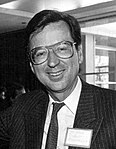1973 Quebec general election
| |||||||||||||||||||||||||||||||||||||||||||||||||||||||||||||||||||||||
110 seats in the 30th National Assembly of Quebec 56 seats were needed for a majority | |||||||||||||||||||||||||||||||||||||||||||||||||||||||||||||||||||||||
|---|---|---|---|---|---|---|---|---|---|---|---|---|---|---|---|---|---|---|---|---|---|---|---|---|---|---|---|---|---|---|---|---|---|---|---|---|---|---|---|---|---|---|---|---|---|---|---|---|---|---|---|---|---|---|---|---|---|---|---|---|---|---|---|---|---|---|---|---|---|---|---|
| Turnout | 80.39% | ||||||||||||||||||||||||||||||||||||||||||||||||||||||||||||||||||||||
| |||||||||||||||||||||||||||||||||||||||||||||||||||||||||||||||||||||||
| |||||||||||||||||||||||||||||||||||||||||||||||||||||||||||||||||||||||
The 1973 Quebec general election was held on October 29, 1973 to elect members to National Assembly of Quebec, Canada. The incumbent Quebec Liberal Party, led by Premier Robert Bourassa, won re-election, defeating the Parti Québécois, led by René Lévesque, and the Union Nationale (UN).
The Liberals won the largest majority government in the province's history, with 102 seats. In the process, they reduced the opposition to just eight seats (six PQ, two créditistes) in total. The Parti Québécois held its own, losing only one seat, and despite having fewer seats, became the official Opposition, although PQ leader René Lévesque failed to win a seat in the Assembly.
The Union Nationale, which had held power until the previous 1970 general election, was wiped off the electoral map, losing all 17 of its seats. It would be the first time since the UN's founding in 1935 that the party was without representation in the legislature. However, UN candidate Maurice Bellemare later won a seat in a 1974 by-election.
The popular vote was not as lopsided as the seat count would indicate, even though the Liberals won 54 percent of the popular vote. The Parti Québécois, for instance, won 30% of the popular vote, a significant improvement over their previous showing of 23% in the 1970 election. However, their support was spread out across the entire province, and was not concentrated in enough areas to translate into more seats. Quebec elections have historically produced significant disparities in seat counts.
Results[]
The overall results were:[1]
| Party | Party leader | # of candidates |
Seats | Popular vote | ||||||||
|---|---|---|---|---|---|---|---|---|---|---|---|---|
| 1970 | Elected | % Change | # | % | % Change | |||||||
| Liberal | Robert Bourassa | 110 | 72 | 102 | +41.7% | 1,623,734 | 54.65% | +9.25% | ||||
| Parti Québécois | René Lévesque | 110 | 7 | 6 | -14.3% | 897,809 | 30.22% | +7.16% | ||||
| Parti créditiste | Yvon Dupuis | 109 | 12 | 2 | -83.8% | 294,706 | 9.92% | -1.27% | ||||
| Union Nationale | Gabriel Loubier | 110 | 17 | - | -100% | 146,209 | 4.92% | -14.73% | ||||
| Marxist–Leninist | 14 | * | - | * | 1,325 | 0.04% | * | |||||
| Independent/No designation | 26 | - | - | - | 7,195 | 0.24% | -0.31% | |||||
| Total | 108 | 110 | - | 2,970,978 | 100% | |||||||
Note:
| ||||||||||||
See also[]
- List of Quebec premiers
- Politics of Quebec
- Timeline of Quebec history
- List of Quebec political parties
- 30th National Assembly of Quebec
External links[]
References[]
- ^ "Résultats officiels par parti politique pour l'ensemble des circonscriptions". Directeur général des élections du Québec. Archived from the original on 2013-10-21. Retrieved 2012-01-31.
- 1973 elections in Canada
- Elections in Quebec
- 1973 in Quebec
- October 1973 events in Canada


